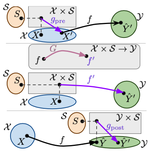
We present an empirical study of debiasing methods for classifiers, showing that debiasers often fail in practice to generalize out-of-sample, and can in fact make fairness worse rather than better. A rigorous evaluation of the debiasing treatment effect requires extensive cross-validation beyond what is usually done. We demonstrate that this phenomenon can be explained as a consequence of bias-variance trade-off, with an increase in variance necessitated by imposing a fairness constraint. Follow-up experiments validate the theoretical prediction that the estimation variance depends strongly on the base rates of the protected class. Considering fairness–performance trade-offs justifies the counterintuitive notion that partial debiasing can actually yield better results in practice on out-of-sample data.
